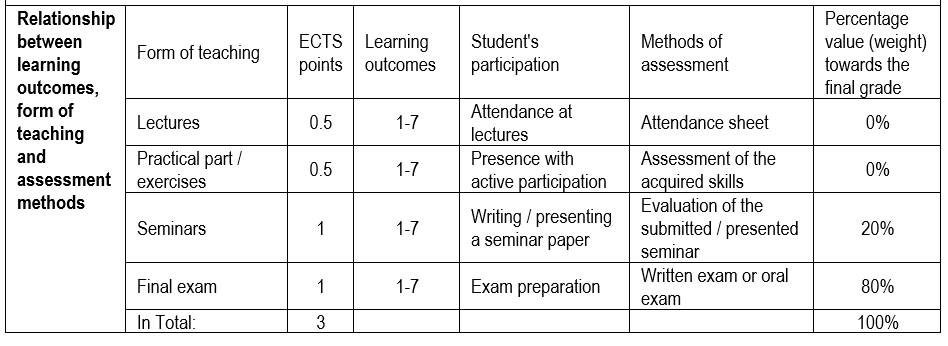The objective of the course is the understanding and knowledge of theoretical basics of infections and diseases caused by microorganisms. Students of dental medicine will have knowledge of the clinical picture of infectious diseases in everyday practice upon completion of the study programme. They will be capable of clinical examination, i.e. simple diagnostic tests, diagnosing the disease caused by microorganisms in the area of the head and neck. They will learn the differential diagnosis of certain diseases, methods of treatment and prevention of certain diseases and epidemiology of diseases caused by microorganisms.
Epidemiology and prevention of significant infectious diseases, including passive and active prophylaxis. Chemoprophylaxis of frequent infectious diseases, endocarditis prophylaxis. Pathophysiology and diagnosis of infectious diseases (clinical and laboratory). Organ system infections, in particular oral cavity, neck and head infections. More significant rash-causing diseases. Systemic infections (bacteremia, sepsis) and local head and neck infections in immunocompromised and non-compromised patients. Access to patients with fever and suspicion of infection or without it. Infections caused by artificial materials. AIDS (HIV). Herpesvirus infections (HSV, VZV, CMV, EVV, HHV-6, HHV-7, HV-8). Hospital infections. Significant zoonoses manifested by symptoms in the head and neck area (anthrax, tularemia, cat-scratch disease), the most significant parasitic disease ( , trichinellosis). Systemic and local fungal infections in the head and neck area and their treatment. The most important tropical diseases (malaria, travel diseases). The emergence of a disease. Anaerobic infections (tetanus, botulism, Clostridium difficile and Clostridium perfringens, local anaerobic infections). Diagnosis and treatment of sexually transmitted diseases manifested in the area of the head and neck. Antimicrobial treatment (antibacterial, antifungal, antiviral) and community infections, especially infections in the area of the head and neck.
Required course materials:
Infektologija; Josip Begovac i sur.
Kolčić I, Vorko-Jović A. Epidemiologija (odabrana poglavlja). Medicinska naklada, Zagreb, 2012.
Upon completion of this course, students will be able to:
1. To determine the general principles of infectious diseases, to group general and special symptoms of infectious diseases
2. To determine the basic types of immunity, the difference between active and passive immunoprophylaxis, examples of dead vaccines and attenuated live vaccines, vaccines in the calendar of mandatory vaccines in the Republic of Croatia
3. Rank the main groups of antimicrobial drugs, describe their mechanisms of action and mechanisms of antimicrobial resistance, list and explain the principles of antimicrobial treatment
4. Assess differential diagnostic possibilities, select diagnostic procedures and suggest antimicrobial and supportive treatment
5. Assess emergencies in infectology, monitor vital parameters, identify and distinguish vitally endangered patients
6. Predict, recognize and respond to the development of complications in the course of infectious diseases that are otherwise treated symptomatically
7. Assess the risk of infection transmission in the dental practice and select appropriate protection measures for dental team members and patients for the purpose of infection control



